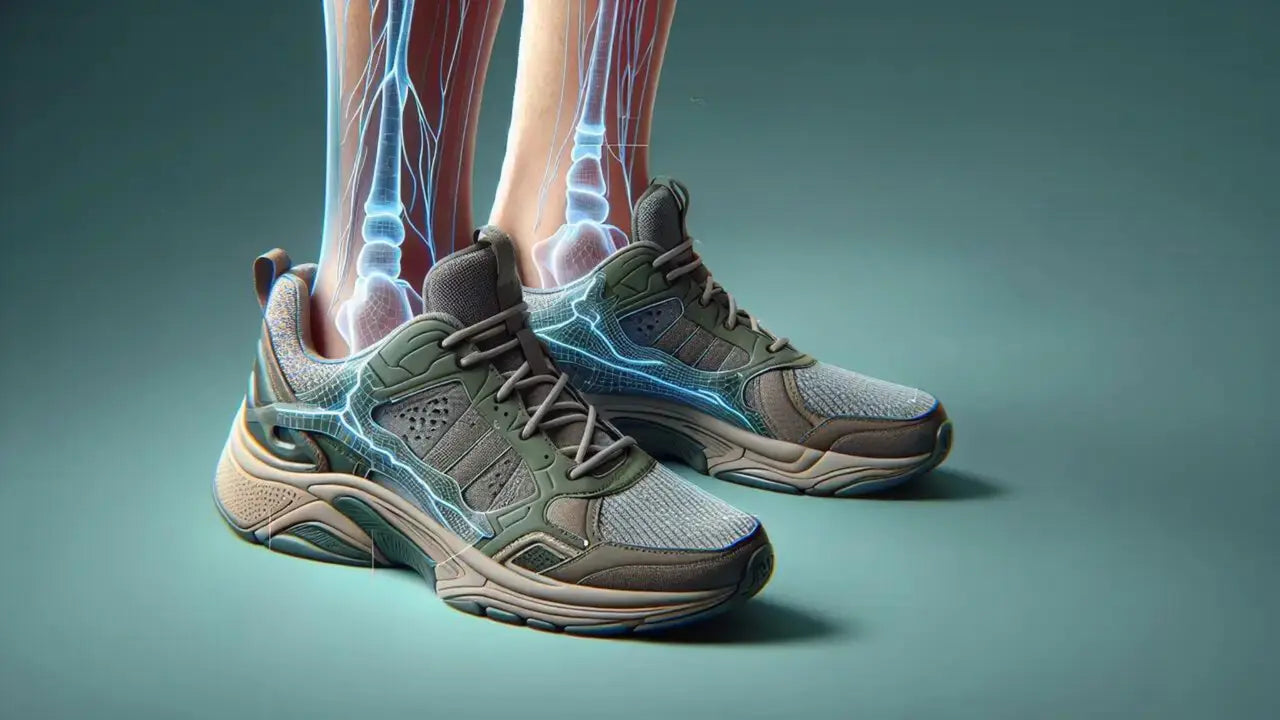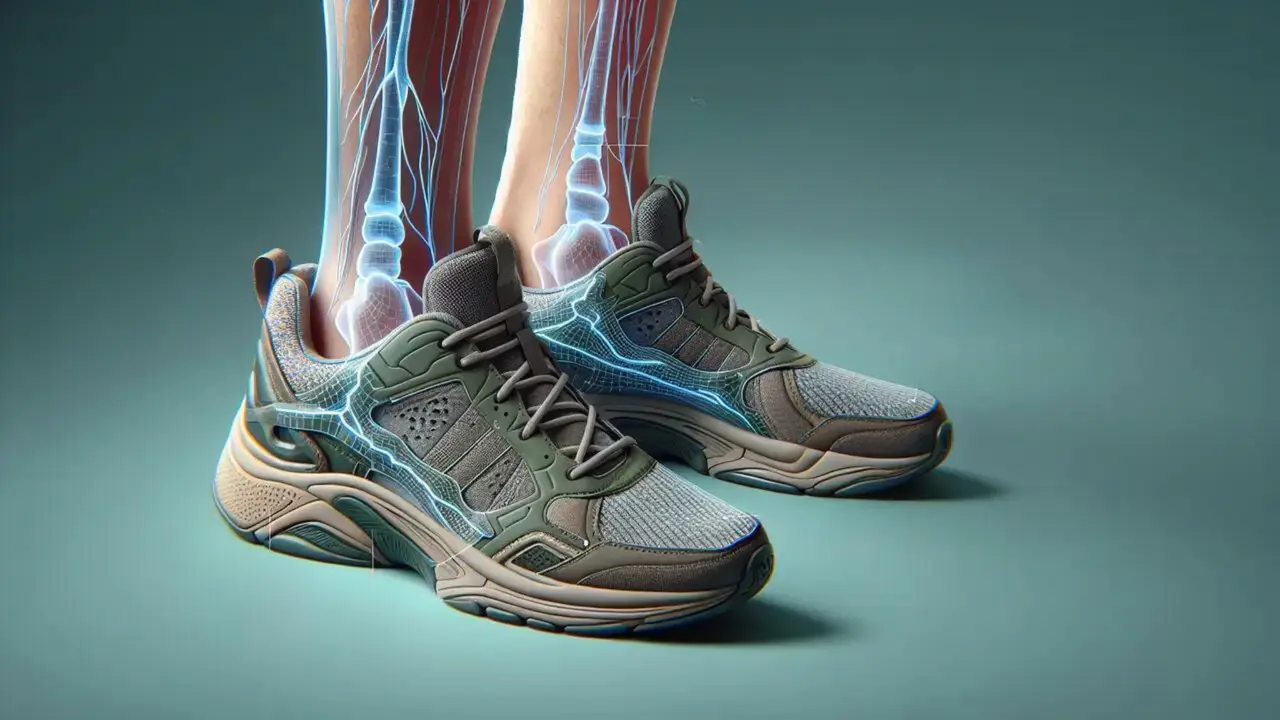
What Features Do Shoes for Neuropathy Offer for Added Comfort?
Dealing with neuropathy can make finding comfortable shoes a challenge. It’s crucial to understand what features to look for in shoes for neuropathy to ensure comfort and support. In this guide, we’ll explore the essential features that make shoes more comfortable for those suffering from this condition, helping you make informed choices for your foot health.
Understanding Neuropathy and Foot Health
Neuropathy, affecting the nerves of the feet, can turn the simple act of choosing shoes into a meticulous process. This condition requires footwear that not only eases pain but also prevents further injury. Understanding the interaction between neuropathy and foot health is the first step towards making informed footwear choices.
When nerves are damaged, the sensation in your feet can be diminished, making it harder to notice pressure points or injuries. This lack of sensation means that shoes for neuropathy need to provide exceptional protection and comfort to avoid unnoticed harm to the feet.
Key Features of Shoes for Neuropathy
Shoes designed for neuropathy typically include features like increased cushioning to absorb shock, wide toe boxes to prevent constriction, and soft, seamless interiors to reduce irritation. These features work together to provide a safe, comfortable environment for sensitive feet.
Another critical aspect is the choice of materials. Shoes for neuropathy often utilize breathable fabrics to maintain a healthy environment inside the shoe, preventing moisture build-up and reducing the risk of infections, which can be particularly hazardous for individuals with neuropathy.
The Importance of Proper Fit
Getting the right fit is perhaps more important for neuropathy sufferers than for the average person. A shoe that fits well will support the foot without adding pressure points, while a poor fit can lead to areas of excessive rubbing and potential foot ulcers.
It is often recommended to have footwear professionally fitted, ensuring not just the right length, but also the correct width, depth, and volume to accommodate any custom orthotics or specific foot shapes.
Cushioning and Support: Why They Matter
Cushioning in shoes acts like a buffer between your feet and the ground. For people with neuropathy, good cushioning can mean the difference between a day with or without pain. Meanwhile, proper support helps to align the feet correctly, reducing strain on the muscles and joints.
Materials and Construction: What to Look For
When considering shoes for neuropathy, the materials and construction are not just about longevity but also safety and comfort. Look for shoes made from flexible, breathable materials that include non-binding uppers and minimal seams to avoid irritation.
Adjustability for Maximum Comfort
Adjustability features, such as Velcro straps or lacing systems that allow for a customizable fit, can be particularly beneficial. They accommodate fluctuations in foot size due to swelling, ensuring comfort throughout the day.
Special Features for Enhanced Protection
Some shoes come with specialized insoles designed to reduce pressure points, while others might feature antimicrobial treatments to ward off infections. These added features can provide a significant advantage in protecting neuropathic feet.
How to Evaluate Shoes for Neuropathy
Evaluating shoes for neuropathy involves more than just trying them on for size. Consider how well they address the specific needs associated with neuropathy: Do they have a high level of cushion and support? Are they made from breathable material? Do they offer adjustability? These questions can guide you to the best options.
The Role of Orthotics in Managing Neuropathy
For many with neuropathy, custom orthotics play a crucial role in managing foot health. These devices are designed to provide tailored support, addressing individual foot structure and needs. Incorporating orthotics into your footwear can significantly enhance comfort and protection.
Finding Your Perfect Pair: Tips and Tricks
Finding the perfect pair of shoes for neuropathy might take time and patience. Don’t be afraid to try multiple brands and styles. Look for stores with knowledgeable staff and a good return policy. Remember, what feels comfortable for someone else might not work for you—personal experience is key.
Frequently Asked Questions About Shoes for Neuropathy
One of the most common questions is whether shoes for neuropathy look significantly different from regular shoes. Fortunately, many brands now offer stylish options that look much like any other shoe, so you don’t have to sacrifice style for comfort and safety.
Another frequent question is about the cost of these shoes. While shoes for neuropathy can be more expensive due to their specialized features, considering them an investment in your health may help justify the cost. There are also insurance plans that may cover part of the expense, depending on your specific situation.
Finding Comfort in Every Step
Choosing the right shoes for neuropathy involves looking for specific features that provide comfort, support, and protection. By understanding and seeking out these characteristics, you can greatly improve your quality of life and reduce discomfort. Remember, the best shoe for you is one that fits well, supports your specific needs, and feels comfortable all day long.
- Choosing a selection results in a full page refresh.
!






















































